Salvage Sawmilling and Furniture Making in Victoria
By Chase Warner, Wood-Mizer
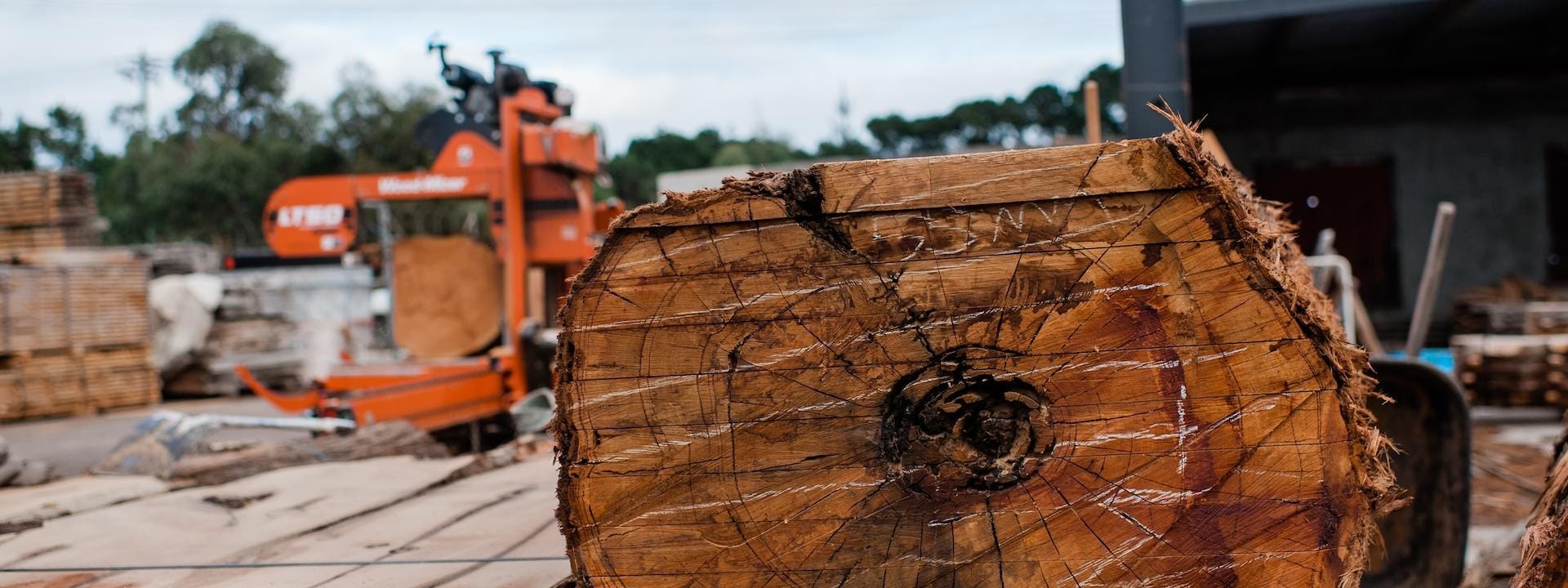
Surrounded by beautiful bay beaches on the Mornington Peninsula in Australia, The Wood Project in Hastings, Victoria was started by Sarah and Nath Worth with a mission to make the most of valuable timber throughout the region. The family-owned and operated business has grown from a small firewood business to a full-service salvage sawmill and kiln also offering dressed timber, slabs, benches, vanities, tables, bar tops, mantles, mortised post & rail fencing, and more sustainable wood products.
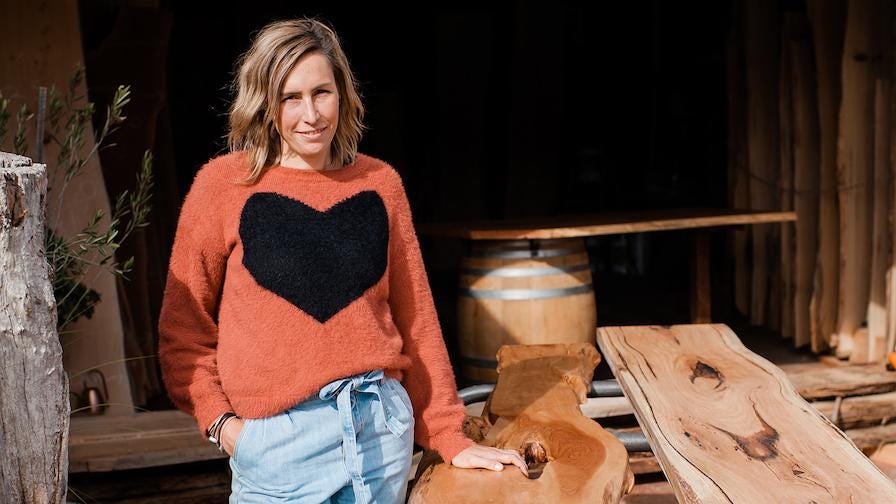

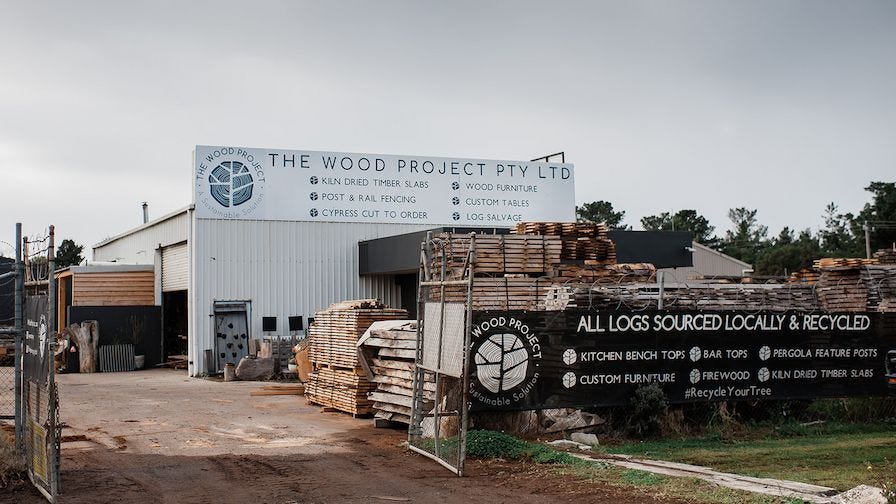

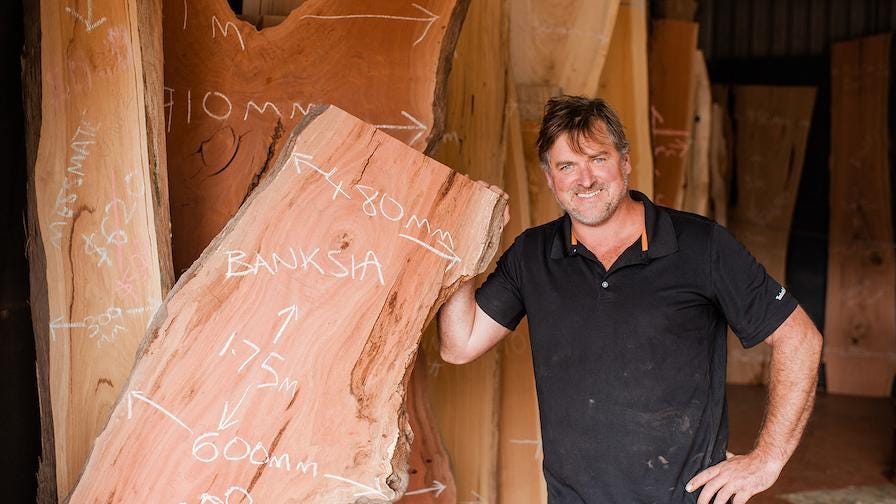

Roots of The Wood Project
The idea of The Wood Project started when Sarah and Nath began researching a sustainable timber solution for approximately two years while working other full-time jobs. “We would set aside strategy days where we would take leave from work and work furiously on achieving our own unique business,” remembered Sarah. “We were very driven to get this off the ground and would hold weekly meetings in our lounge room while bribing the kids to leave us to it!” In 2016, Sarah and Nath both quit their paid jobs and started The Wood Project.
Starting in a small paddock with no water, power, or amenities, The Wood Project first operated primarily as a firewood business. “We saw a resource being wasted in trees cut down and chipped, so we started building relationships with arborists locally,” said Sarah. “We offered a service of taking logs to process into firewood, but we quickly saw that this too was a waste of a beautiful resource as the log quality we were salvaging was too good to process into firewood.”
Surrounded by valuable cypress, eucalyptus, gum, and other European wood species including oak, Sarah and Nath were encouraged to start sawmilling logs themselves. They found that the process was time consuming without the proper sawmilling equipment. “Slabs need to air dry for a minimum of two years so we started to look into fast tracking this process and we built a kiln,” said Sarah. “Once we had dry timber, we had to upscale dramatically from the yard we were renting. We needed buildings, electricity, and a ‘front of house’ to sell from.” As luck would have it, their landlords had a large commercial block with main road exposure that was available for new tenants and The Wood Project continued to grow.
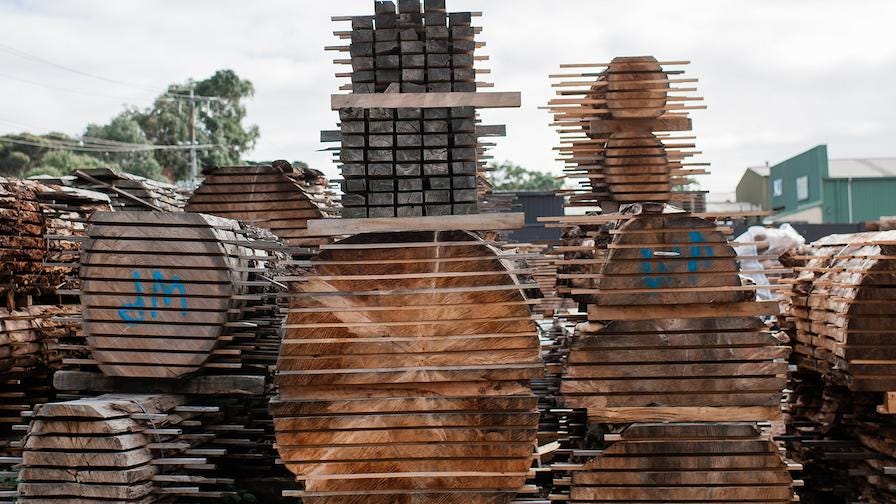



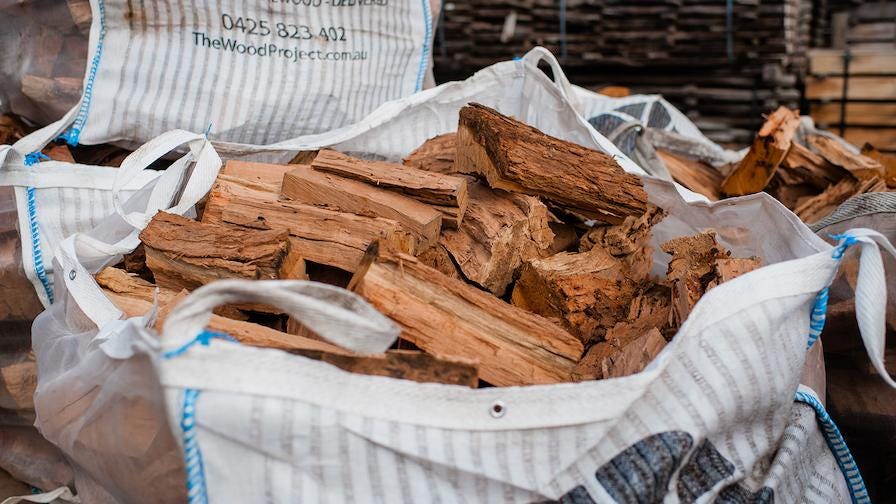

Salvage Sawmilling and Furniture Making
Today, The Wood Project operates with a Wood-Mizer LT50 WIDE hydraulic portable sawmill and a Wood-Mizer wood drying kiln. “We went with Wood-Mizer as we know them to be well-made, not bolted together, fast, and efficient,” said Sarah. “We run the sawmill four days a week five hours a day for cypress cut to order, post & rail fencing, slabbing and cutting timber into boards. The gain in social media awareness was also a plus, seeing milling from a quality sawmill whereas most people have only seen chainsaw mills.”
Before owning a portable sawmill, Sarah and Nath salvaged all of their logs and used a local contract sawmiller to mill and prepare the timber. This enabled them to build their inventory, establish their client base, and create an efficient process for drying as these are all important factors for a successful operation.
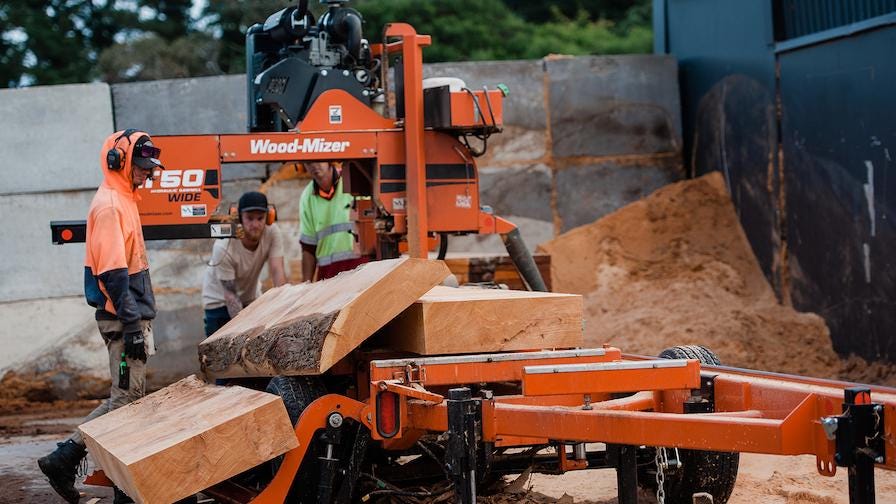

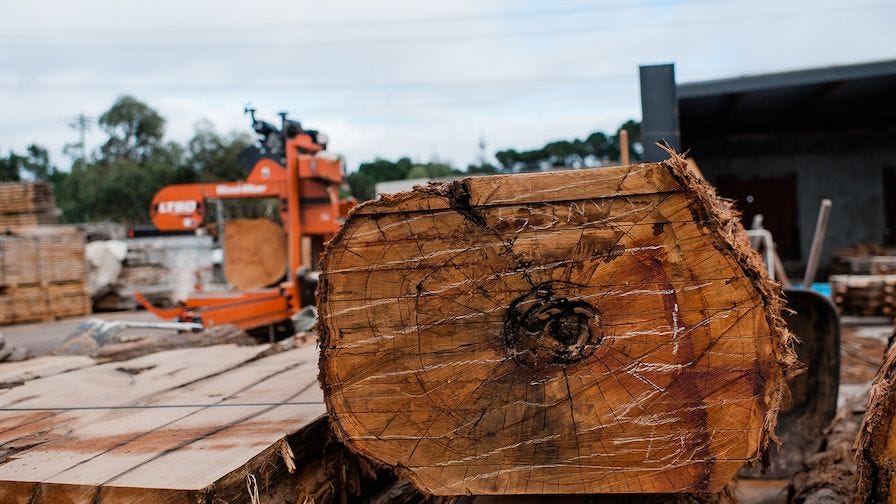

With the proper sawmilling equipment now on-site, The Wood Project has been able to focus on the efficiency and quality of processing logs into finished products. First logs from the Mornington Peninsula and anywhere in Victoria are salvaged with their own crane truck and transported to the log yard. Log ends are all sealed with paint to minimize any splitting before they are milled into timber. “If they are hardwood logs, we usually mill them to 55mm which is optimal thickness for our drying process,” said Sarah. Cypress is milled to order into post and rail lengths or pergola posts. Slabs, on the other hand, are air dried for six months or until their moisture content reaches 25% or below and then finish drying in the kiln for around two to three weeks. After drying, slabs are sanded and sold as is or custom orders for vanities, bar tops, mantels, tables, and more are completed for customers. “We sand, resin fill, fine sand, soften natural edges, and provide the customer with a finished piece ready for installation, in their home as a luxury item that brings warmth and character to their home and is also completely sustainable,” shared Sarah.
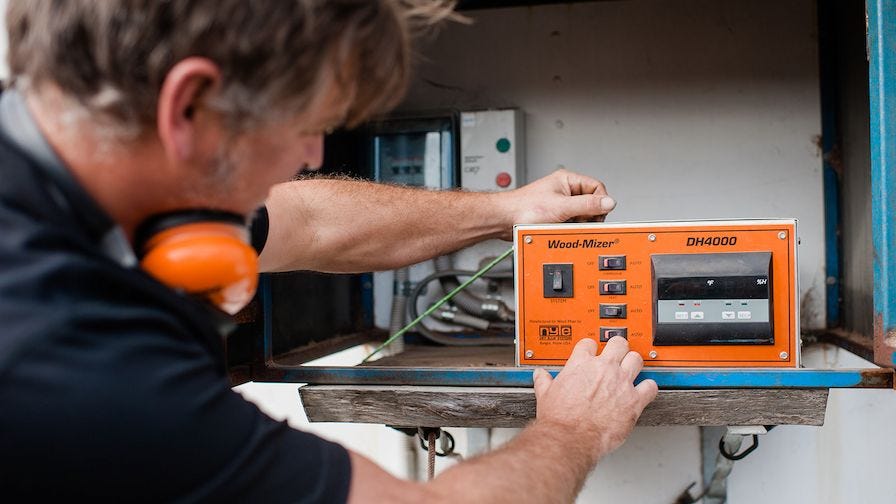

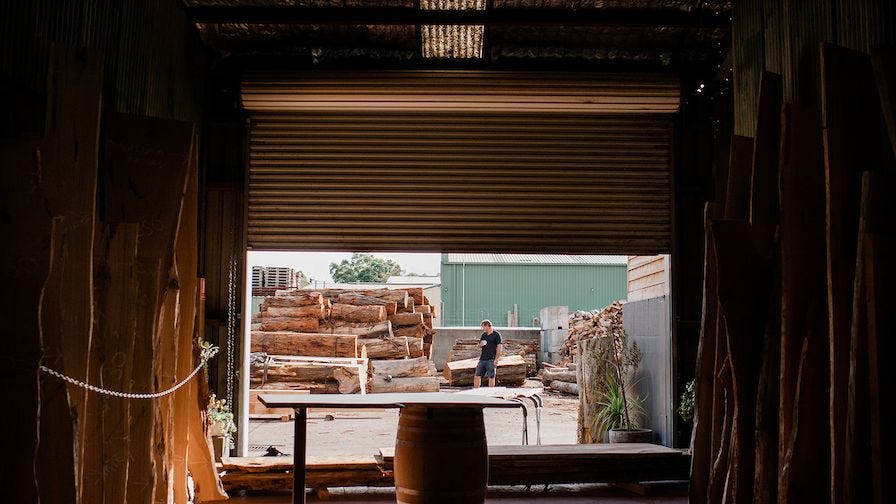

A Sustainable Solution
The Wood Project provides a variety of timber and finished furniture for sale, but the story of how the wood is salvaged and milled locally is a main selling point for customers. “Our customers range from homeowners, cabinet makers, furniture makers, and anyone in between,” said Sarah. “Our clients love that we recycle trees, they love timber and they are after a one-off piece that no one else has and that creates a unique talking point for friends and family.” Sarah also shared that their post and rail customers also enjoy knowing the timber they purchased is coming from a sustainable source.
As with any sawmill business, responsibilities at The Wood Project fluctuate day-to-day depending on visiting customers, salvaging logs, milling logs, racking timber, loading or unloading the kiln, dressing slabs, pricing slabs, or making custom furniture. “Our mill time is still ever increasing and we are now looking at ways to improve our productivity with twin edgers,” said Sarah. For the future, Sarah and Nath have one goal in mind for The Wood Project, “Grow.”
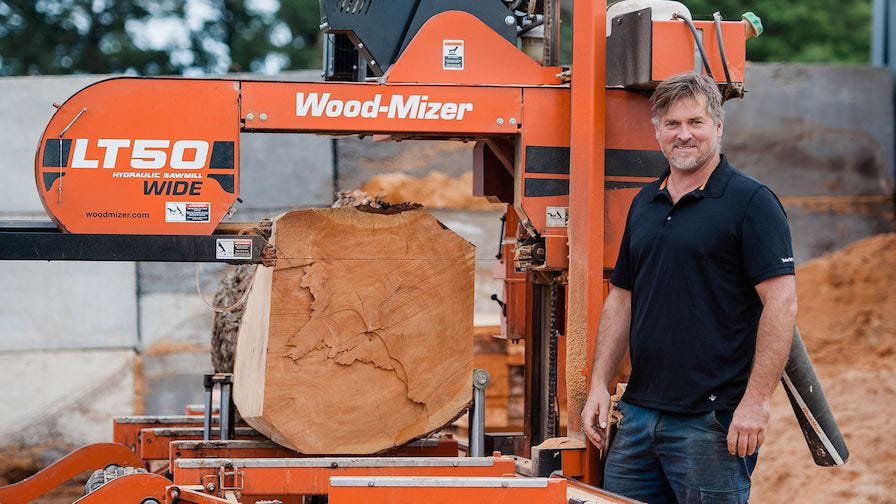

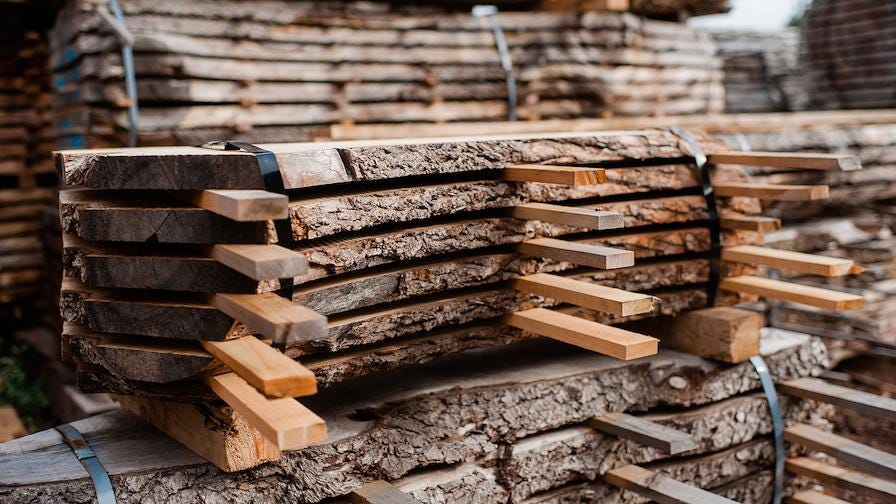

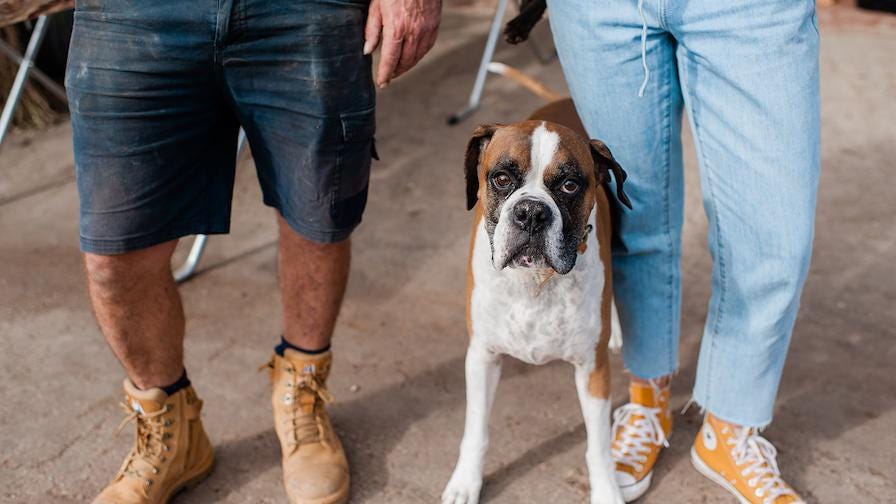

Surrounded by beautiful bay beaches on the Mornington Peninsula in Australia, The Wood Project in Hastings, Victoria was started by Sarah and Nath Worth with a mission to make the most of valuable timber throughout the region. The family-owned and operated business has grown from a small firewood business to a full-service salvage sawmill and kiln also offering dressed timber, slabs, benches, vanities, tables, bar tops, mantles, mortised post & rail fencing, and more sustainable wood products.
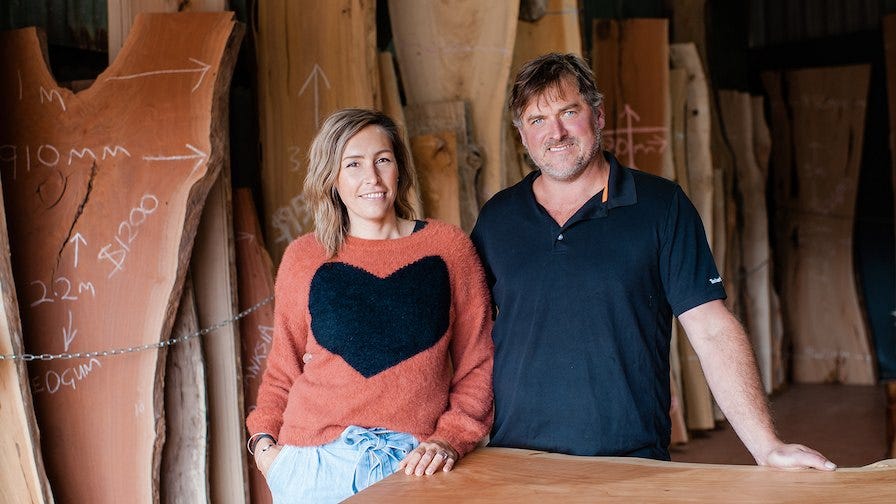


Roots of The Wood Project
The idea of The Wood Project started when Sarah and Nath began researching a sustainable timber solution for approximately two years while working other full-time jobs. “We would set aside strategy days where we would take leave from work and work furiously on achieving our own unique business,” remembered Sarah. “We were very driven to get this off the ground and would hold weekly meetings in our lounge room while bribing the kids to leave us to it!” In 2016, Sarah and Nath both quit their paid jobs and started The Wood Project.
Starting in a small paddock with no water, power, or amenities, The Wood Project first operated primarily as a firewood business. “We saw a resource being wasted in trees cut down and chipped, so we started building relationships with arborists locally,” said Sarah. “We offered a service of taking logs to process into firewood, but we quickly saw that this too was a waste of a beautiful resource as the log quality we were salvaging was too good to process into firewood.”
Surrounded by valuable cypress, eucalyptus, gum, and other European wood species including oak, Sarah and Nath were encouraged to start sawmilling logs themselves. They found that the process was time consuming without the proper sawmilling equipment. “Slabs need to air dry for a minimum of two years so we started to look into fast tracking this process and we built a kiln,” said Sarah. “Once we had dry timber, we had to upscale dramatically from the yard we were renting. We needed buildings, electricity, and a ‘front of house’ to sell from.” As luck would have it, their landlords had a large commercial block with main road exposure that was available for new tenants and The Wood Project continued to grow.



Salvage Sawmilling and Furniture Making
Today, The Wood Project operates with a Wood-Mizer LT50 WIDE hydraulic portable sawmill and a Wood-Mizer wood drying kiln. “We went with Wood-Mizer as we know them to be well-made, not bolted together, fast, and efficient,” said Sarah. “We run the sawmill four days a week five hours a day for cypress cut to order, post & rail fencing, slabbing and cutting timber into boards. The gain in social media awareness was also a plus, seeing milling from a quality sawmill whereas most people have only seen chainsaw mills.”
Before owning a portable sawmill, Sarah and Nath salvaged all of their logs and used a local contract sawmiller to mill and prepare the timber. This enabled them to build their inventory, establish their client base, and create an efficient process for drying as these are all important factors for a successful operation.


With the proper sawmilling equipment now on-site, The Wood Project has been able to focus on the efficiency and quality of processing logs into finished products. First logs from the Mornington Peninsula and anywhere in Victoria are salvaged with their own crane truck and transported to the log yard. Log ends are all sealed with paint to minimize any splitting before they are milled into timber. “If they are hardwood logs, we usually mill them to 55mm which is optimal thickness for our drying process,” said Sarah. Cypress is milled to order into post and rail lengths or pergola posts. Slabs, on the other hand, are air dried for six months or until their moisture content reaches 25% or below and then finish drying in the kiln for around two to three weeks. After drying, slabs are sanded and sold as is or custom orders for vanities, bar tops, mantels, tables, and more are completed for customers. “We sand, resin fill, fine sand, soften natural edges, and provide the customer with a finished piece ready for installation, in their home as a luxury item that brings warmth and character to their home and is also completely sustainable,” shared Sarah.


A Sustainable Solution
The Wood Project provides a variety of timber and finished furniture for sale, but the story of how the wood is salvaged and milled locally is a main selling point for customers. “Our customers range from homeowners, cabinet makers, furniture makers, and anyone in between,” said Sarah. “Our clients love that we recycle trees, they love timber and they are after a one-off piece that no one else has and that creates a unique talking point for friends and family.” Sarah also shared that their post and rail customers also enjoy knowing the timber they purchased is coming from a sustainable source.
As with any sawmill business, responsibilities at The Wood Project fluctuate day-to-day depending on visiting customers, salvaging logs, milling logs, racking timber, loading or unloading the kiln, dressing slabs, pricing slabs, or making custom furniture. “Our mill time is still ever increasing and we are now looking at ways to improve our productivity with twin edgers,” said Sarah. For the future, Sarah and Nath have one goal in mind for The Wood Project, “Grow.”




